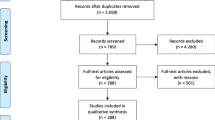Abstract
Background
Recent advancements in artificial intelligence, such as OpenAI’s ChatGPT-4, are revolutionizing various sectors, including healthcare. This study investigates the use of ChatGPT-4 in identifying suitable candidates for bariatric surgery and providing surgical recommendations to improve decision-making in obesity treatment amid the global obesity epidemic.
Methods
We devised ten patient scenarios, thoughtfully encompassing a spectrum that spans from uncomplicated cases to more complex ones. Our objective was to delve into the decision-making process regarding the recommendation of bariatric surgery. From July 29th to August 10th, 2023, we conducted a voluntary online survey involving thirty prominent bariatric surgeons, ensuring that there was no predetermined bias in the selection of a specific type of bariatric surgery. This survey was designed to collect their insights on these scenarios and gain a deeper understanding of their professional experience and background in the field of bariatric surgery. Additionally, we consulted ChatGPT-4 in two separate conversations to evaluate its alignment with expert opinions on bariatric surgery options.
Results
In 40% of the scenarios, disparities were identified between the two conversations with ChatGPT-4. It matched expert opinions in 30% of cases. Differences were noted in cases like gastrointestinal metaplasia and gastric adenocarcinoma, but there was alignment with conditions like endometriosis and GERD.
Conclusion
The evaluation of ChatGPT-4’s role in determining bariatric surgery suitability uncovered both potential and shortcomings. Its alignment with experts was inconsistent, and it often overlooked key factors, emphasizing human expertise’s value. Its current use requires caution, and further refinement is needed for clinical application.
Graphical Abstract

Similar content being viewed by others
Data Availability
The datasets generated during and/or analyzed during the current study are available from the corresponding author on reasonable request.
References
Jin L, Tan F, Jiang S. Generative adversarial network technologies and applications in computer vision. Comput Intell Neurosci. 2020;2020:1459107.
Pan Z, Yu W, Yi X, Khan A, Yuan F, Zheng Y. Recent progress on generative adversarial networks (GANs): A survey. IEEE Access. 2019;7:36322–33. https://doi.org/10.1109/ACCESS.2019.2905015.
Sarraju A, Bruemmer D, Van Iterson E, et al. Appropriateness of cardiovascular disease prevention recommendations obtained from a popular online chat-based artificial intelligence model. JAMA. 2023;329(10):842–4.
Kung TH, Cheatham M, Medenilla A, et al. Performance of ChatGPT on USMLE: potential for AI-assisted medical education using large language models. PLOS Digit Heal. 2023;2(2):e0000198.
Morreel S, Mathysen D, Verhoeven V. Aye, AI! ChatGPT passes multiple-choice family medicine exam. Med Teacher. 2023;45:665–6 (England).
Teebagy S, Colwell L, Wood E, et al. Improved performance of ChatGPT-4 on the OKAP exam: a comparative study with ChatGPT-3.5. medRxiv [Internet]. 2023;2023.04.03.23287957. Available from: http://medrxiv.org/content/early/2023/04/03/2023.04.03.23287957.abstract. Accessed 5 Aug 2023.
Askari A, Jambulingam P, Gurprashad R, et al. The surgical management of obesity. Clin Med. 2023;23(4):330–6.
Perdomo CM, Cohen RV, Sumithran P, et al. Contemporary medical, device, and surgical therapies for obesity in adults. Lancet (London, England). 2023;401(10382):1116–30.
Brown WA, Shikora S, Ronald Liem, et al. Seventh IFSO Global Registry Report 2022 [Internet]. 2022. Available from: https://www.ifso.com/pdf/ifso-7th-registry-report-2022.pdf. Accessed 10 Aug 2023.
Rajeev ND, Samaan JS, Premkumar A, et al. Patient and the public’s perceptions of bariatric surgery: a systematic review. J Surg Res. 2023;283:385–406.
Premkumar A, Samaan JS, Samakar K. Factors associated with bariatric surgery referral patterns: a systematic review. J Surg Res. 2022;276:54–75.
Paolino L, Genser L, Fritsch S, et al. The web-surfing bariatic patient: the role of the Internet in the decision-making process. Obes Surg. 2015;25(4):738–43.
Samaan JS, Yeo YH, Rajeev N, et al. Assessing the accuracy of responses by the language model ChatGPT to questions regarding bariatric surgery. Obes Surg. 2023;33(6):1790–6.
Kermansaravi M, Parmar C, Chiappetta S, et al. Patient selection in one anastomosis/mini gastric bypass-an expert modified Delphi consensus. Obes Surg. 2022;32(8):2512–24.
Athanasiadis DI, Carr RA, Smith C, et al. Social support provided to bariatric surgery patients through a facebook group may improve weight loss outcomes. Surg Endosc. 2022;36(10):7652–5.
Aleman R, Milla-Matute C, Mora MF, et al. Google Trends as a resource for bariatric education: what do patients want to know? Surg Obes Relat Dis Off J Am Soc Bariatr Surg. 2020;16(12):1948–53.
Butt M, Su L, Rigby A. Associations of use of social media and psychopathology and body image in pre- and post-surgical bariatric samples: a cross-sectional analysis. Obes Surg. 2022;32(9):3047–55.
Gutterman SA, Schroeder JN, Jacobson CE, et al. Examining the accessibility of online patient materials for bariatric surgery. Obes Surg. 2023;33(3):975–7.
Scarano Pereira JP, Martinino A, Manicone F, et al. Bariatric surgery on social media: a cross-sectional study. Obes Res Clin Pract. 2022;16(2):158–62.
Corcelles R, Daigle CR, Talamas HR, et al. Assessment of the quality of Internet information on sleeve gastrectomy. Surg Obes Relat Dis Off J Am Soc Bariatr Surg. 2015;11(3):539–44.
Koball AM, Jester DJ, Pruitt MA, et al. Content and accuracy of nutrition-related posts in bariatric surgery Facebook support groups. Surg Obes Relat Dis Off J Am Soc Bariatr Surg. 2018;14(12):1897–902.
Padilla G, Awshah S, Mhaskar RS, et al. Spanish-language bariatric surgery patient education materials fail to meet healthcare literacy standards of readability. Surg Endosc. 2023;37(8):6417–28.
Rouhi AD, Ghanem YK, Hoeltzel GD, et al. Quality and readability of online patient information on adolescent bariatric surgery. Obes Surg. 2023;33(1):397–9.
Batar N, Kermen S, Sevdin S, et al. Assessment of the quality and reliability of information on nutrition after bariatric surgery on YouTube. Obes Surg [Internet]. 2020;30(12):4905–10. https://doi.org/10.1007/s11695-020-05015-z.
Jiang J, Chen Y, Shi J, et al. Population attributable burden of Helicobacter pylori-related gastric cancer, coronary heart disease, and ischemic stroke in China. Eur J Clin Microbiol Infect Dis Off Publ Eur Soc Clin Microbiol. 2017;36(2):199–212.
Ivanecz A, Sremec M, Ceranić D, Potrč S, Skok P. Life threatening bleeding from duodenal ulcer after Roux-en-Y gastric bypass: Case report and review of the literature. World J Gastrointest Endosc. 2014;6(12):625–9. https://doi.org/10.4253/wjge.v6.i12.625.
Kermansaravi M, Kassir R, Shahsavan M, et al. Approach to gastric intestinal metaplasia before bariatric surgery. Obes Surg. 2023;33:366–7.
Tornese S, Aiolfi A, Bonitta G, et al. Remnant gastric cancer after Roux-en-Y Gastric bypass: narrative review of the literature. Obes Surg. 2019;29(8):2609–13.
Shahabi S, Carbajo M, Nimeri A, et al. Factors that make bariatric surgery technically challenging: a survey of 370 bariatric surgeons. World J Surg. 2021;45(8):2521–8.
Quesada BM, Roff HE, Kohan G, et al. Laparoscopic sleeve gastrectomy as an alternative to gastric bypass in patients with multiple intraabdominal adhesions. Obes Surg. 2008;18(5):566–8.
Patterson EJ, Davis DG, Khajanchee Y, et al. Comparison of objective outcomes following laparoscopic Nissen fundoplication versus laparoscopic gastric bypass in the morbidly obese with heartburn. Surg Endosc. 2003;17(10):1561–5.
Nau P, Jackson HT, Aryaie A, et al. Surgical management of gastroesophageal reflux disease in the obese patient. Surg Endosc. 2020;34(1):450–7.
Mejía-Rivas MA, Herrera-López A, Hernández-Calleros J, et al. Gastroesophageal reflux disease in morbid obesity: the effect of Roux-en-Y gastric bypass. Obes Surg. 2008;18(10):1217–24.
Frezza EE, Ikramuddin S, Gourash W, et al. Symptomatic improvement in gastroesophageal reflux disease (GERD) following laparoscopic Roux-en-Y gastric bypass. Surg Endosc. 2002;16(7):1027–31.
Zhao H, Jiao L. Comparative analysis for the effect of Roux-en-Y gastric bypass vs sleeve gastrectomy in patients with morbid obesity: evidence from 11 randomized clinical trials (meta-analysis). Int J Surg. 2019;72:216–23.
Eisenberg D, Shikora SA, Aarts E, et al. 2022 American Society for Metabolic and Bariatric Surgery (ASMBS) and International Federation for the Surgery of Obesity and Metabolic Disorders (IFSO): indications for metabolic and bariatric surgery. Surg Obes Relat Dis Off J Am Soc Bariatr Surg. 2022;18(12):1345–56.
Garg R, Mohan BP, Ponnada S, et al. Safety and efficacy of bariatric surgery in inflammatory bowel disease patients: a systematic review and meta-analysis. Obes Surg. 2020;30(10):3872–83.
McKenna NP, Habermann EB, Sada A, et al. Is bariatric surgery safe and effective in patients with inflammatory bowel disease? Obes Surg. 2020;30(3):882–8.
Heshmati K, Lo T, Tavakkoli A, et al. Short-term outcomes of inflammatory bowel disease after Roux-en-Y gastric bypass vs sleeve gastrectomy. J Am Coll Surg. 2019;228(6):893-901.e1.
OpenAI. Introducing ChatGPT [Internet]. Available from: https://openai.com/blog/chatgpt. Accessed 2 Aug 2023.
Frühbeck G, Gómez-Ambrosi J. Control of body weight: a physiologic and transgenic perspective. Diabetologia. 2003;46(2):143–72.
Author information
Authors and Affiliations
Corresponding author
Ethics declarations
Ethics Approval and Consent to Participate
Not applicable.
Consent for Publication
Not applicable.
Competing Interests
The authors declare no competing interests.
Additional information
Publisher's Note
Springer Nature remains neutral with regard to jurisdictional claims in published maps and institutional affiliations.
Key Points
• In approximately 30% of cases across two conversations, ChatGPT-4’s recommendations matched the expert panel’s opinions.
• In 60% of cases, bariatric surgery was recommended by ChatGPT-4, while 90% of patients were considered suitable by the expert panel.
• Inconsistencies were observed in four out of ten scenarios between two separate conversations, constituting a 40% inconsistency rate.
Supplementary Information
Below is the link to the electronic supplementary material.
Rights and permissions
Springer Nature or its licensor (e.g. a society or other partner) holds exclusive rights to this article under a publishing agreement with the author(s) or other rightsholder(s); author self-archiving of the accepted manuscript version of this article is solely governed by the terms of such publishing agreement and applicable law.
About this article
Cite this article
Jazi, A.H.D., Mahjoubi, M., Shahabi, S. et al. Bariatric Evaluation Through AI: a Survey of Expert Opinions Versus ChatGPT-4 (BETA-SEOV). OBES SURG 33, 3971–3980 (2023). https://doi.org/10.1007/s11695-023-06903-w
Received:
Revised:
Accepted:
Published:
Issue Date:
DOI: https://doi.org/10.1007/s11695-023-06903-w




